Confirmed Speakers
Inaugural Rhodes Forum on Humanities
Convenors
-
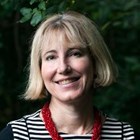
Prof Elleke Boehmer (South Africa-at-Large & St John's 1985)
Professor of World Literature in English, University of Oxford
Elleke Boehmer is the Professor of World Literature in English at Oxford and a Fellow of the Royal Society of Literature. She is the author of five novels, including Screens against the Sky (David Higham-shortlisted, 1990), and The Shouting in the Dark (Olive Schreiner prize-winner, 2018). Boehmer is the author and editor of over twenty other books including Colonial and Postcolonial Literature (1995, 2005), Nelson Mandela (2008), Stories of Women (2005), Postcolonial Poetics (2018), and Scouting for Boys (2004, 2018). Indian Arrivals was the ESSE 2015-16 prize-winner. Her second collection of short stories, To the Volcano, was recently published.
-

Prof Karen O'Brien
Head of Humanities Division, University of Oxford
Professor O'Brien joined Oxford University as Head of Humanities Division in September 2016. Prior to coming to Oxford she was Vice-Principal (Education) and Professor of English Literature at King's College London. She read English at University College, Oxford, took her DPhil at Oxford (St Cross), and was awarded a Harkness Fellowship at the University of Pennsylvania. She was a research fellow at Peterhouse, Cambridge, and then held posts at Southampton, Cardiff, Warwick and Birmingham universities. Her research focuses on the Enlightenment and eighteenth-century literature, particularly the historical writing and fiction of the period. Professor O’Brien is a member of the English Faculty and a Fellow of University College and a Fellow of the Royal Society of Art. She is the author of prize-winning studies of the Enlightenment and of The Oxford History of the Novel, 1750 to 1820, and regularly shares her research via national radio broadcasts and public lectures.
Speakers
-

Dr Jess Auerbach (South Africa-at-Large & St Antony's 2009)
Visiting Researcher, Open University of Mauritius
Jess holds an MScFM from Oxford and a PhD in Anthropology from Stanford. Her research focuses on decolonial pedagogy, and transition and transformation in African higher education. Her forthcoming book From Water to Wine: Becoming Middle Class in Angola is, according to one reviewer, the first ethnography “by a digital native, for digital natives” and includes graphic-novel history, photo essays and poetry. She pioneered new approaches to social science curricula at a pan-African institution in Mauritius and is currently working on a second book about Mauritius. In 2020 she will begin a new project on mindfulness and knowledge construction in Southern Africa.
-

Shaista Aziz
Journalist, Writer, Campaigner & Oxford City Councillor
Shaista Aziz is a Journalist, writer, campaigner and an Oxford City Councillor. She’s the co founder of the Labour Homelessness Campaign and the intersectional feminist platform NGO Safe Space, seeking to hold the aid sector to account over #AidToo abuses. Shaista is a former aid worker of 15 years and has worked extensively across the Middle East, Pakistan, East and West Africa. Her writing and journalism has been published in a number of international publications including The Guardian, Globe and Mail, Huffington Post and New York Times. She regularly contributes as a guest and commentator on national and international radio and TV panel discussions. Shaista is a Clore Emerging Leader Fellow for the women and girls sector and is a Fellow or the Royal Society of Arts for her work on challenging racism, patriarchy and power abuse in the aid and humanitarian sector. She is co vice chair of the Fabian Women’s Network.
-

Prof Gurminder Bhambra
Professor of Postcolonial and Decolonial Studies, University of Sussex
Gurminder K Bhambra is Professor of Postcolonial and Decolonial Studies at the University of Sussex. Previously, she was Professor of Sociology at the University of Warwick and has been Guest Professor of Sociology and History at Linnaeus University, Sweden. She is author of Connected Sociologies and the award-winning Rethinking Modernity: Postcolonialism and the Sociological Imagination. She recently co-edited a volume on Decolonising the University and speaks regularly on the crisis for refugees in Europe and on questions of citizenship in the light of Brexit. She set up the Global Social Theory website (globalsocialtheory.org) and is co-editor of Discover Society (discoversociety.org).
-
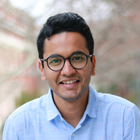
Dhruva Bhat (India & St John’s 2017)
DPhil candidate in International Development, University of Oxford
Dhruva (India & St John’s 2017) is from Chennai, India and is a doctoral student in Oxford’s Department of International Development. Before this, he did a master’s degree in the same department as a Rhodes Scholar and graduated from Harvard with a bachelor’s in economics. Dhruva is interested in issues of education and employment, and his current research focuses on start-up entrepreneurship. He has coached the Indian national debating team for the last four years, including the team that won the most recent World Schools Debating Championships. His favourite writer is Arundhati Roy.
-
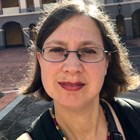
Dr Rebecca Boggs (Kentucky & Trinity 1995)
Senior Program Officer, Division of Education Programs, National Endowment for the Humanities (NEH)
Rebecca Boggs is a Senior Program Officer at the National Endowment for the Humanities (NEH), an independent grant-making agency of the U.S. government. During 11 years in NEH’s Division of Education Programs, she has worked across various grant programs supporting professional and curricular development in K-12 and higher education. She currently heads its newest program, Humanities Connections, which brings together faculty in and outside of the humanities to create new integrative learning opportunities for undergraduates. Educated at Harvard, Oxford, and Yale, she has taught literature, writing, and Yiddish, worked in Jewish community engagement, and led services as a lay cantor.
-

Penelope Brook (New Zealand & Nuffield 1984)
Executive Director, Atlantic Institute
Penelope joined the Atlantic Institute, based at Rhodes House, in January 2017. She brings to the Institute over three decades of deep engagement in public policy and socio-economic inclusion. She previously worked at the World Bank, where she most recently served as Ombudsman, helping manage and resolve conflict within the organization and advance staff and leadership’s commitment and adherence to its core values. A central theme of her work at the Bank - in Africa, South and East Asia and Latin America - was in helping to expand the use of results-based approaches to improving services and opportunities for the most vulnerable in urban and remote settings. She also played an active role in the World Bank’s development of diagnostic tools that shine light on the costs and red tape that impede small business creation and growth, and on the differential regulatory and legal impediments faced by women in developing a business or taking a job. Earlier in her career, Dr Brook worked in New Zealand as an economist in the public and the private sectors. She holds an MA in Economics from the University of Auckland, New Zealand, of which she is a Distinguished Alumna, and a DPhil in Economics from the University of Oxford, which she attended as a Rhodes Scholar.
-

Dr Maria Sachiko Cecire (Virginia & Keble 2006)
Associate Professor of Literature and Director of the Center for Experimental Humanities, Bard College
Maria Sachiko Cecire is an Associate Professor of Literature at Bard College and the founding Director of the Center for Experimental Humanities, which focuses on how technologies mediate the human experience. She is the author of Re-Enchanted: The Rise of Children’s Fantasy Literature in the Twentieth Century (University of Minnesota Press, 2019) and co-editor of Space and Place in Children’s Literature, 1789-Present (Routledge, 2015). She has been a National Project Scholar for the American Library Association’s Great Stories Club for underserved youth since 2014. Her other public-facing humanities work include podcasting, documentary films, and short fiction.
-
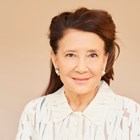
Dr Jung Chang
Author
Jung Chang is the internationally bestselling author of Wild Swans: Three Daughters of China; Mao: The Unknown Story (with Jon Halliday); and Empress Dowager Cixi: The Concubine who Launched Modern China. Her books have been translated into over 40 languages and sold more than 15 million copies outside Mainland China where they are banned. She was born in China in 1952 and came to Britain in 1978. She lives in London.
-
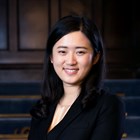
Yan Chen (China & St John's 2019)
Masters student in Comparative Literature and Critical Translation, University of Oxford
Yan Chen (China & St John’s, 2019) is pursuing a MSt in Comparative Literature and Critical Translation at Oxford. Her work as a theatre dramaturg and translator has been seen at American Repertory Theater, Shanghai Dramatic Arts Centre, Edinburgh Festival Fringe, Hartford Stage and more. She received the 2019 Tilted Axis Mentorship for a BAME Literary Translator from the National Centre for Writing and studied arts criticism at the Eugene O’Neill Theater Center’s National Critics Institute. Her writings and translations have been published in Playbill, HowlRound, Critical Stages, Stage and Screen Reviews, and TheTheatreTimes.com, where she is also an editor. Master’s in Dramaturgy and Theater Studies, A.R.T. Institute at Harvard University; BA English, Nanjing University.
-

Prof Danny Dorling
Halford Mackinder Professor of Geography, University of Oxford
Danny Dorling works at the University of Oxford. He was previously a professor at the University of Sheffield, and before then a professor at Leeds. His earlier academic posts were in Newcastle, Bristol, and New Zealand. His most recent book, with Sally Tomlinson, is ‘Rule Britannia: Brexit and the end of Empire’ concerning what the 2016 EU referendum and 2019 ‘exit’ reveals. In 2018 he published “Peak Inequality” on issues of housing, health, employment, education, wealth and poverty in the UK.
-

Olivia Durand
Co-Director of Uncomfortable Oxford
Olivia is co-director of Uncomfortable Oxford. Uncomfortable Oxford is a public engagement project that runs weekly walking tours in Oxford on topics such as imperialism, race, gender, and religious discrimination, and wealth and inequality. Alongside Paula Larsson, she founded the project a year ago with the aim of raising awareness and creating discourse about uncomfortable histories in the modern landscape or Oxford. Olivia is currently completing her Doctoral degree in the Faculty of History on the topic of settler colonialism.
-
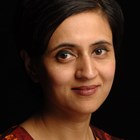
Sagarika Ghose (India & St Antony's 1987)
Consulting Editor, The Times Of India
Sagarika Ghose is a noted journalist in India as well as an author and broadcaster. She has worked at The Times Of India, Outlook magazine and The Indian Express. She was a prime time television news anchor on BBC World's "Question Time India" as well as on the news network CNNIBN. She is the author of two novels as well as the recently published acclaimed biography of Indira Gandhi, “Indira, India’s Most Powerful Prime Minister,” now slated for a screen adaptation. Her latest book is: ' Why I Am A Liberal. A Manifesto for Indians Who Believe In Individual Freedom.' (Penguin.Viking. 2018) She has won numerous awards for journalism, including the C. H Mohammad Koya National Journalism Award as well as Best Anchor Award from the Indian Television Academy. She has also been listed as one of the world’s most famous women Rhodes Scholars. Ghose is a popular and widely read columnist and at present she is consulting editor with The Times Of India.
-
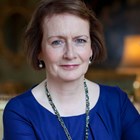
Dame Helen Ghosh
Master of Balliol College, Oxford
Dame Helen Ghosh DCB worked in the Civil Service for 33 years in a variety of government departments, including the Department for Housing, Communities and Local Government, Cabinet Office, HM Revenue and Customs and the Department for Work and Pensions. From 2005 to 2010, she was Permanent Secretary at the Department for Environment, Food and Rural Affairs, and from 2010, Permanent Secretary at the Home Office. In 2012 she became Director General of the National Trust, and she took up her role as Master of Balliol in 2018. She is a Visitor of the Ashmolean Museum and a Trustee of the Rhodes Trust.
-
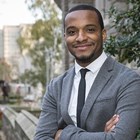
Hazim Hardeman (Pennsylvania & St John's 2018)
MPhil candidate in US History, University of Oxford
Hazim Hardeman is a graduate student reading for an MPhil in US History. His research interest lie at the intersection of race and political economy, specifically racial capitalism, the relationship between race and neoliberalism, and the imbrications of race and liberal categories.
-

Prof Dan Hicks
Professor of Contemporary Archaeology, Oxford University & Curator of World Archaeology, Pitt Rivers Museum
Dan specialises in the material and visual culture of the recent past and the near-present. He was Visiting Professor at the musée du quai Branly in 2017-18, and received the Rivers Medal of the Royal Anthropological Institute in 2017. Current funded projects include an Art Fund Headley Fellowship about the (in)visibility of colonial violence in the permanent displays of the Pitt Rivers Museum, and “Understanding Colonial Collecting in Africa” with Professor Bénédicte Savoy (Technische Universität Berlin). Dan's latest books are Lande: the Calais "Jungle" and Beyond (Bristol University Press 2019, with Sarah Mallet), and Archaeology and Photography (Bloomsbury 2019, with Lesley McFadyen) and Isle of Rust (Luath Press 2019, with Alex Boyd and Jonathan Meades). His next book — The Brutish Museum — is about the Benin Bronzes; it will be published in 2020 by Pluto Press. Twitter: @ProfDanHicks
-

Levi Hord (Ontario & Wadham 2018)
Masters student in Women's Studies, University of Oxford
Levi Hord is a queer/trans scholar working within the disciplines of feminist, queer and trans theory, cultural criticism, intellectual history, and the history of medicine. They are currently writing on how we arrived, through history, at the concept of authentic gender and sexual identities. They also teach on the MSt in Women's Studies at Oxford.
-
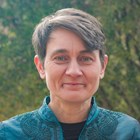
Prof Marnie Hughes-Warrington (Tasmania & Merton 1992)
Professor of History, Australian National University
Prof Marnie Hughes-Warrington has a global profile in history theory, particularly for her work on historical thought, non-written histories, the ethics of history, and hate histories. Her chief publications include Fifty Key Thinkers on History, ‘How Good an Historian Shall I Be?’: R. G. Collingwood, the Historical Imagination and Education, History Goes to the Movies and Revisionist Histories. She has rewritten the history of histories around wonder (History as Wonder, 2018) and is currently writing a book on the creative imprecision of historical ethics. Her next book, under contract, will be on machine-made histories.
-

Prof David Jones
Ackerman Professor of the Culture of Medicine, Harvard University
Trained in psychiatry and history of science, David Jones is the Ackerman Professor of the Culture of Medicine at Harvard University. His research has explored the causes and meanings of health inequalities (Rationalizing Epidemics: Meanings and Uses of American Indian Mortality since 1600) and decision making in cardiac therapeutics (Broken Hearts: The Tangled History of Cardiac Care). He is now pursuing three new projects, on the evolution of coronary artery surgery, on heart disease and cardiac therapeutics in India, and on the threat of air pollution to health. He teaches the history of medicine, medical ethics, and social medicine.
-
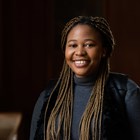
Morategi Kale (South Africa-at-Large & Linacre 2018)
DPhil candidate in Geography and the Environment, University of Oxford
Morategi is currently a student at the University of Oxford where she is reading for a DPhil in Geography and the Environment. In particular, she plans to do her research on the experiences of young, educated and unemployed young people in South Africa. Morategi has always been passionate about issues concerning young Africans. Before she came to Oxford, she worked with an organisation whose goal was to increase the participation of young people in policy-making.
-

Maya Krishnan (Maryland/DC & Balliol 2015)
DPhil candidate in Philosophy, University of Oxford
Maya Krishnan is currently doing a DPhil in Philosophy and is an Examination Fellow at All Souls College. Her work in philosophy focuses on metaphysics, theology, and the work of Immanuel Kant, as well as issues related to the epistemology of machine learning algorithms. She also writes non-academic essays on philosophical topics of existential concern, including death and the relationship between humans and the infinite.
-
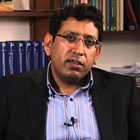
Prof Adeel Malik (Pakistan & St Peter's 1999)
Globe Fellow in the Economies of Muslim Societies and Associate Professor, University of Oxford
Adeel Malik is Globe Fellow in the Economies of Muslim Societies at the Oxford Centre for Islamic Studies and an Associate Professor at Oxford Department of International Development. Prof Malik is trying to develop a broader research lens on political economy of the Middle East. His research on Middle Eastern political economy has featured in the CNN, New York Times, Project Syndicate, and Foreign Affairs.
-

Prof Maureen McLane (Massachusetts & Hertford 1989)
Professor of English, New York University
Maureen N. McLane is a poet, critic, educator, and divagator. She grew up in upstate New York and was educated at Harvard, Oxford (Rhodes Scholar), and the University of Chicago. She has published six books of poetry, including "This Blue" (FSG, 2014), Finalist for the National Book Award in Poetry, and most recently "Mz N: the serial" (FSG, 2016), "Some Say" (FSG, 2017), and "What I’m Looking For: Selected Poems" (Penguin UK, 2019). She has also published two critical monographs on British romantic poetics and numerous essays on contemporary literature and culture. Her book, "My Poets" (FSG, 2012), an experimental hybrid of memoir and criticism, was a finalist for the 2012 National Book Critics Circle Award in Autobiography. She is Professor of English at New York University. (Photo by Joanna Eldredge Morrissey)
-
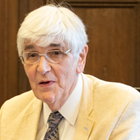
Edward Mortimer
Distinguished Fellow, All Souls College
Edward was a journalist on The Times (1967-85) and the Financial Times (1987-98). He served as Chief Speechwriter and Director of Communications to UN Secretary-General Kofi Annan (1998-2006), and as Chief Programme Officer of the Salzburg Global Seminar (2007-2011). He is now an activist and consultant on “contested histories”, global governance, human rights, the management of diversity in modern Western societies, and the politics and history of the Middle East. He has written, inter alia, Faith and Power: the Politics of Islam (1982) and (with Timothy Garton Ash and Kerem Öktem) Freedom in Diversity (2013).
-

Mayanka Mukherji (India & St Cross 2015)
DPhil Candidate in Anthropology, University of Oxford
I am currently pursuing my DPhil in Anthropology, looking at empty homes in central London, to compare what types of emptiness is often villainised and what types are normalised. I documented my field notes in the form of short stories that I am currently compiling into a collection of ethnographic fiction, and I also scribble stories and poetry on the side that engage with different urban textures and experiences.
-

Zehra Naqvi (British Columbia & Green Templeton 2018)
Masters student in Migration Studies, University of Oxford
F. Zehra Naqvi is a Karachi-born writer, editor and poet raised on unceded Coast Salish lands (Vancouver). Zehra has written and edited for various publications internationally. Her poem ‘forgetting urdu’ was the winner of Room magazine’s 2016 Poetry Contest. Her work has appeared in Jaggery, Room, The New Quarterly, The Express Tribune, Dawn, and Tin House. She has a BA Honours in English Literature and Creative Writing from the University of British Columbia and is currently pursuing an MSc in Social Anthropology at Oxford. Her work explores issues around borders, migration, displacement, urban spaces, gender, and Muslim identities.
-
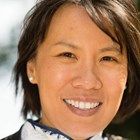
Dr Amy Ng (Hong Kong & Balliol 1997)
Playwright
Amy is a British-Hong Kong playwright. Her plays include UNDER THE UMBRELLA (Belgrade Theatre Coventry, UK Tour), ACCEPTANCE (Hampstead Theatre) and SHANGRI-LA (Finborough Theatre). Radio plays include TIGER GIRLS (BBC Radio 4) and KILBURN PASSION (BBC Radio 3). She is under commission to the Royal Shakespeare Company, Almeida Theatre, and ice&fire, and is developing her play THATCHER IN CHINA at the National Theatre Studio. Her new adaptation of Strindberg’s MISS JULIE will be produced at Chester Storyhouse in March 2020. She was named on the BBC’s New Talent Hotlist 2017.
-

Nanjala Nyabola (Kenya & Harris Manchester 2009)
Writer, Researcher, Political Analyst
Nanjala Nyabola (Kenya and Harris Manchester 2009) is a writer and political analyst based in Nairobi, Kenya. Her work focuses on refugees and migration, the politics of the digital age, and Eastern African politics in general. Her work has appeared in numerous publications including Foreign Affairs, Foreign Policy, the Financial Times, Al Jazeera and others. She is the author of 'Digital Democracy, Analogue Politics: How the Internet Era is Transforming Politics in Kenya' (Zed Books, 2018) and the co-editor of 'Where Women Are: Gender and the 2017 Kenyan General Election (Twaweza Publications, 2018), as well as a contributor to numerous edited collections and academic volumes.
-
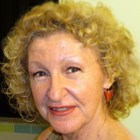
Prof Evelyn O'Callaghan (Jamaica & Wolfson 1978)
Professor of West Indian Literature, Department of Language, Linguistics and Literature, University of the West Indies
Evelyn O’Callaghan is Professor of West Indian Literature, University of the West Indies, Cave Hill. Her published work includes articles and chapters on West Indian literature, particularly on women’s writing, early Caribbean narratives and more recently, ecocritical readings of Caribbean landscapes in visual and scribal texts. She has published Woman Version: Theoretical Approaches to West Indian Fiction by Women, Women Writing the West Indies 1804-1939: A Hot Place, Belonging to Us and edited early Caribbean novels by Frieda Cassin and Elma Napier. Most recently, she co-edited Caribbean Irish Connections and Madness in Anglophone Caribbean Literature: On the Edge. She is Editor-in-Chief of the Journal of West Indian Literature.
-

Chris Oechsli
President and CEO, The Atlantic Philanthropies
Christopher G. Oechsli (Chair) is President and CEO of The Atlantic Philanthropies and serves on the Board of Directors. He has led Atlantic’s grant making through its four program areas and Founding Chairman grants. He led the foundation’s development of higher education and rule-of-law initiatives in Viet Nam, South Africa, Australia and the United States; and supported the Founding Chairman’s work in health, education and medical research in the U.S., Australia and Viet Nam. Mr. Oechsli previously served as Counsel to U.S. Senator Russ Feingold, whom he advised on legislation and a range of domestic and international issues. In 1985, he became the first resident visiting law professor from the United States in the People’s Republic of China, where he taught constitutional and commercial law at the East China Law School in Shanghai. Mr. Oechsli is a graduate of Occidental College in Los Angeles. Following studies in Chinese language at Georgetown University and graduate studies at Columbia University, he received an M.A. in Foreign Affairs and a J.D. from the University of Virginia.
-
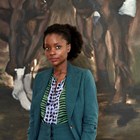
Nana Oforiatta Ayim
Founder, ANO Institute of Arts and Knowledge
Nana Oforiatta Ayim is a writer, filmmaker and art historian. She studied Russian and Politics and worked for the Eastern European section of the Department of Political Affairs of United Nations in New York. She then went on to do a Masters in African Art History, curating groundbreaking exhibitions such as Ghana's first pavilion at the Venice Biennale, speaking globally on cultural narratives and institution-building, in countries like Ghana, Senegal, the UK, US, Germany, Holland, Denmark, France and Brazil; as well as writing for publications like frieze, ArtNews, African Metropolitan Architecture. She has made several films, a cross of fiction, travel essay, and documentary, that have been shown at museums like The New Museum, Tate Modern, and LACMA. She is the recipient of the 2015 Art & Technology Award from LACMA; of the 2016 AIR Award, which “seeks to honour and celebrate extraordinary African artists who are committed to producing provocative, innovative and socially-engaging work”; and of the inaugural 2018 Soros Arts Fellowship. She has been named one of the Apollo ’40 under 40’; one of 50 African Trailblazers by The Africa Report; one of 12 African women making history by Okayafrica; and a Quartz Africa Innovator; and is a 2018 Global South Visiting Fellow at Oxford University. Her first novel, The God Child, is being published by Bloomsbury Publishing in November 2019.
-
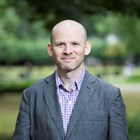
Sasha Polakow-Suransky (Rhode Island & St Antony's 2003)
Deputy Editor, Foreign Policy
Sasha Polakow-Suransky is a deputy editor at Foreign Policy. He was a 2015-2016 Open Society Foundations fellow and previously worked as an op-ed editor at the New York Times and a senior editor at Foreign Affairs. Polakow-Suransky is the author of Go Back to Where You Came From: The Backlash Against Immigration and the Fate of Western Democracy and The Unspoken Alliance: Israel’s Secret Relationship with Apartheid South Africa. He holds a doctorate in modern history from Oxford University, where he was a Rhodes Scholar.
-
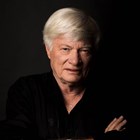
Prof Geoffrey Robertson (New South Wales & University 1970)
Barrister and co-head, Doughty Street Chambers
Geoffrey Robertson AO QC attended Univ as the 1970 NSW scholar. In his career at the English bar he has appeared in many celebrated trials and appeals and in European and Commonwealth courts, described in his recent autobiography ‘Rather His Own Man – In Court with Tyrants, Tarts and Trouble-Makers’. In 1990 he founded and still heads Doughty Street Chambers, the UK’s largest human rights practice. He is a Master of the Middle Temple, and has recently received the New York Bar Association award for distinction in international affairs. Other books include ‘Crimes Against Humanity – The Struggle for Global Justice’ and ‘The Tyrannicide Brief’ about the Cromwellian lawyers who put the King on trial. His latest work, published this month, is ‘Who Owns History? Elgin’s Loot and the Case for Returning Plundered Treasure’.
-

Jay Ruckelshaus (Indiana & St John's 2016)
DPhil candidate in Political Philosophy, University of Oxford
Jay Ruckelshaus (Indiana & St. John's, 2016) is a D.Phil. student in political philosophy. His dissertation tries to evaluate trends of political polarization in light of the benefits of partial, conflictual political communities. Long sympathetic to an aspirationally Arendtian public sphere, he now finds himself in the odd position of defending the value of stalwart partisans. Jay contributes to his own political community, back in Indiana, by writing for local publications and leading a campaign to establish a statewide service program for young Hoosiers. He also runs a small nonprofit that helps students with disabilities get to college.
-
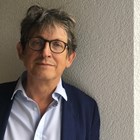
Alan Rusbridger
Principal, Lady Margaret Hall
Alan Rusbridger is Principal of Lady Margaret Hall in Oxford, where he also chairs the Reuters Institute for the Study of Journalism For 20 years Rusbridger was editor in Chief of the Guardian in London. He oversaw the transformation of the paper to a world-leading digital news organisation. Under his leadership the paper became the most-visited serious English language website in the world. Investigations into WikiLeaks, tax avoidance, phone hacking and the Snowden revelations won numerous awards, including the 2014 Pulitzer Prize for public service. He wrote about the transformation and challenges of the news industry in Breaking News (2018). Rusbridger was educated at Cambridge University and started his newspaper career on a local paper before first joining the Guardian in 1979. He had spells as a reporter, feature writer, columnist, critic (Obersver), US bureau Chief (London Daily News) before turning to editing. He launched the Guardian Weekend and G2 sections and, upon being made editor in 1995, launched the digital versions of the Guardian.
-
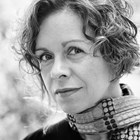
Prof Lyndsey Stonebridge
Professor of Humanities and Human Rights, University of Birmingham
Lyndsey Stonebridge is Interdisciplinary Professor of Humanities and Human Rights at the University of Birmingham, UK. Her recent books include Placeless People: Rights, Writing, and Refugees (OUP, 2018), winner of the Modernist Studies Association Best Book Prize, 2019, The Judicial Imagination: Writing after Nuremberg (Edinburgh University Press, 2011), winner of the British Academy Rose Mary Crawshay Prize. Her other books include The Destructive Element (1998), Reading Melanie Klein (with John Phillips, 1998), The Writing of Anxiety (2007), and British Fiction after Modernism (with Marina MacKay, 2007). Writing and Righting: Literature in the Age of Human Rights, is out with Oxford University Press next year. She is currently writing a book on the relevance of Hannah Arendt for our times, Thinking Like Hannah Arendt, which will be published by Jonathan Cape and Hogarth in 2022(OUP, 2020), and collaborating on a large project with refugee and host communities in Lebanon, Jordan, and Turkey, Refugee Hosts. A regular media commentator, she has written for The New Statesman, Prospect and The New Humanist.
-
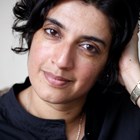
Dr Ananya Vajpeyi (India & Exeter 1994)
Associate Professor, Centre for the Study of Developing Societies, New Delhi
Ananya Vajpeyi is Associate Professor at the Centre for the Study of Developing Societies, New Delhi and a Visiting Fellow 2019-20 at the Centre for Research in the Arts, Social Sciences and Humanities at Cambridge University. She works at the intersection of intellectual history, political theory and critical philology. As a Rhodes Scholar (India & Exeter 1994) she earned an MPhil in Modern English Literature, followed by a PhD in South Asian Languages and Civilisations at the University of Chicago. She is the author of the prize-winning book, Righteous Republic: The Political Foundations of Modern India (Harvard, 2012). She teaches, writes, speaks and conducts research in India, the US, the UK and Europe and has published widely on politics, arts and ideas.
-
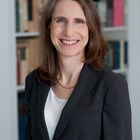
Michele Warman (New York & Magdalen 1982)
Executive Vice President, Chief Operating Officer, General Counsel and Secretary, Andrew W. Mellon Foundation
Michele S. Warman is Executive Vice President, Chief Operating Officer, General Counsel and Secretary of The Andrew W. Mellon Foundation. Working with the president and staff to advance a dynamic program strategy in support of the arts and the humanities, Ms. Warman oversees the $7.2 billion Foundation’s operations and legal affairs. Ms. Warman is a graduate of Princeton University (AB), University of Oxford (MA) (Rhodes), and Harvard Law School (JD). Ms. Warman serves on the boards of the Southern Education Foundation and Princeton University’s Center for Jewish Life, and on a variety of grant and fellowship selection panels.
-

Naomi Wolf (Connecticut & New College 1985)
CEO, DailyClout.io and author of 'Outrages: Sex, Censorship, and the Criminalization of Love' & 'The End of America'.
Naomi Wolf if author of seven international best-selling nonfiction books, focused on women's issues and civil liberties. She is CEO of DailyClout.io, a digital platform that helps people use the tools od democracy. Her latest book, Outrages: Sex, Censorship and the Criminalization of Love, was a Waterstones Pride Month Selection and an Oprah Magazine Best Books by Women for 2019. She was a Rhodes scholar and is mother of two and stepmother of two.
-
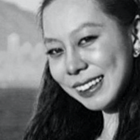
Beatrice Yeung (Hong Kong & Keble 2017)
Researcher, Medical Sciences Division & MPhil in Medical Anthropology, University of Oxford (Hong Kong & Keble 2017)
Beatrice Yeung (Hong Kong & Keble 2017) graduated from McGill University with a bachelor’s degree in molecular and cell biology and sociology, and from the University of Oxford with a master’s degree in medical anthropology. She is interested in making scientific advances more accessible to the underserved, and in building partnerships that draw upon diverse perspectives to improve health care for the vulnerable. Beatrice is currently working in clinical and neuromuscular research with the Medical Sciences Division at the University of Oxford.